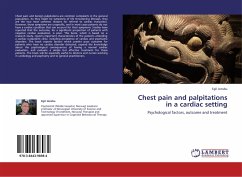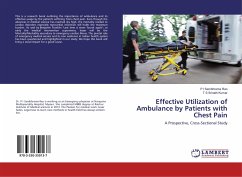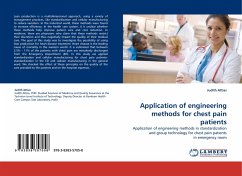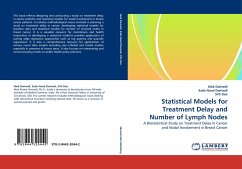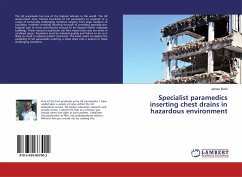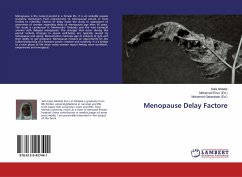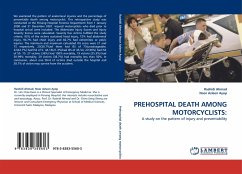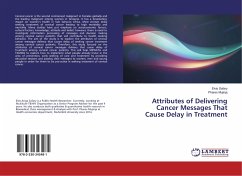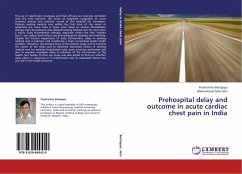
Prehospital delay and outcome in acute cardiac chest pain in India
Versandkostenfrei!
Versandfertig in 6-10 Tagen
41,99 €
inkl. MwSt.

PAYBACK Punkte
21 °P sammeln!
The use of reperfusion strategies and their efficacy are inversely correlated with the time between the onset of symptoms suggestive of acute coronary disease and patients' arrival at the hospital for treatment. Patients seeking medical care within the first hour of the onset of symptoms are more than 6 times more likely to receive thrombolytic therapy than the patients who delayed seeking medical care for more than 6 hours. Early thrombolytic therapy, especially within the first "golden hour", can reduce both infarct size and subsequent disability and mortality. Despite the known importance o...
The use of reperfusion strategies and their efficacy are inversely correlated with the time between the onset of symptoms suggestive of acute coronary disease and patients' arrival at the hospital for treatment. Patients seeking medical care within the first hour of the onset of symptoms are more than 6 times more likely to receive thrombolytic therapy than the patients who delayed seeking medical care for more than 6 hours. Early thrombolytic therapy, especially within the first "golden hour", can reduce both infarct size and subsequent disability and mortality. Despite the known importance of early intervention, delay in seeking medical care is common and constitutes a major unresolved public health problem. Therefore, the primary focus of the present study was to examine the extent of the delay and to delineate associated factors in seeking medical care for patients hospitalized with acute coronary syndromes and also to examine avoidable delay in initiation of the interventionat the health care facility. Further our study was also aimed to find out whether delay either in reporting or in intervention and its associated factors has any role in the health outcome.



